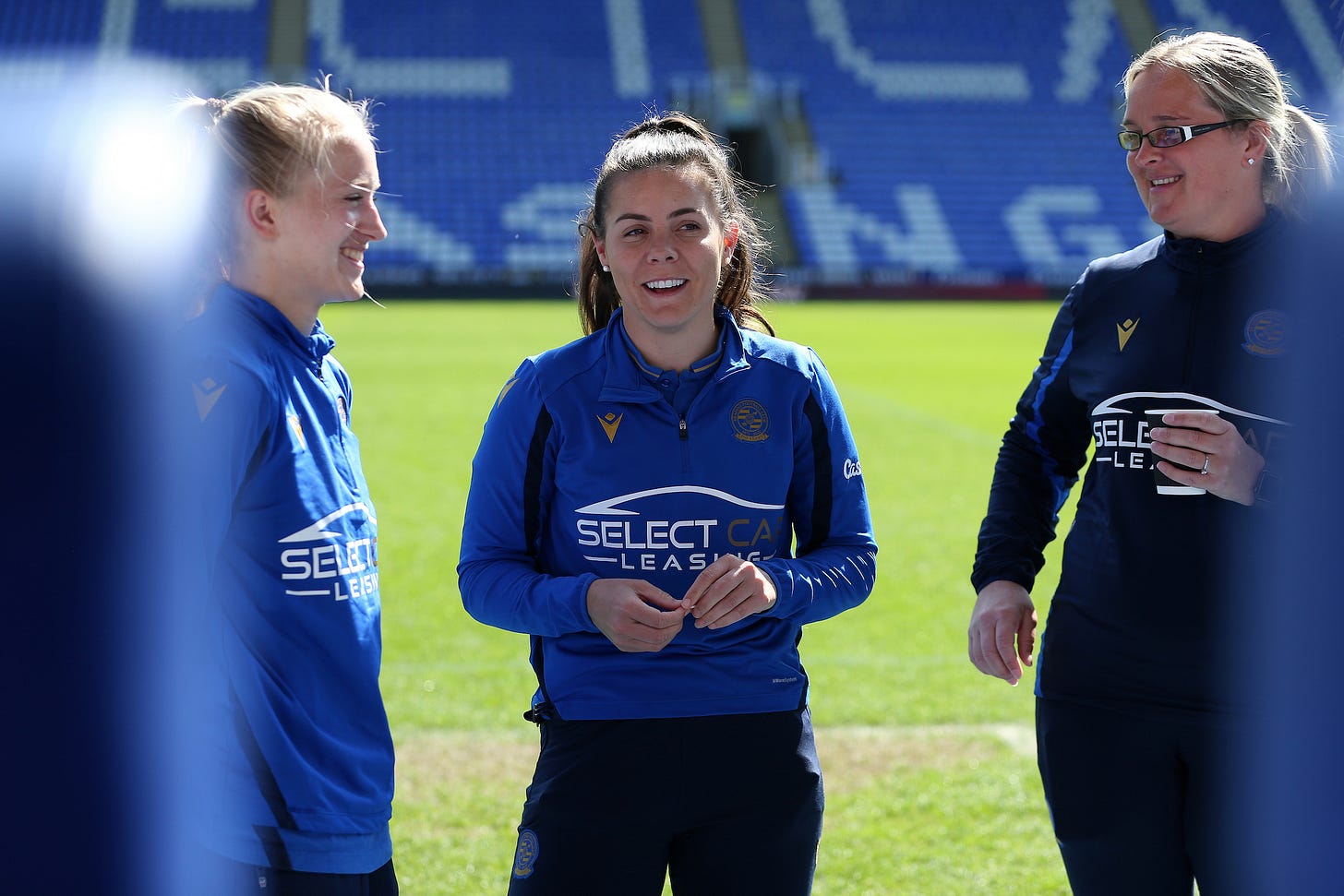The Big Interview: Brooke Chaplen
One year ago today, Reading midfielder Brooke Chaplen was forced to retire after a bone tumour was found in her leg. For the first time, she opens up about the experience and her role with the Royals.

“The story of the football life,” chuckles Brooke Chaplen, as I instantly pointt out the coordinated chaos on the huge whiteboard behind her on her office wall.
A whole calendar years’ worth of events, games, meetings etc, with blue, red and green pens propped up next to the board to differentiate between what she has coming up.
Chaplen’s email alert bongs at least half a dozen times in the background while we chat, because this is now her life, as General Manager of Reading’s women’s team, the side she played for until she was forced into retirement a year ago today.
Forced sounds like a harsh term, but the circumstances around her playing career ending abruptly were just that, even if she constantly refers to what happened as “lucky”, and in one sense, she’s absolutely right.
Breaking onto the scene with Everton as a youngster after spells at hometown team Portsmouth and then a year in Chelsea’s youth team, Chaplen became a mainstay in the Women’s Super League with the Toffees, then Sunderland and the Royals, making well over 100 appearances, scoring over 30 goals and working her way up the England ranks as far as an under 23 international.
But in February last year, all that came to a sudden end, when Chaplen suffered a stress fracture in her leg, and that led to the discovery of a much more serious issue being discovered – a bone tumour.
That is why the 34-year-old describes herself as lucky, because she’s well aware how much worse things could have been. Given she had no pain and no symptoms, had she not suffered the stress fracture the tumour may never have been found, as she sits behind her office desk to talk about it.
Check out over 100 more unique stories in WFC’s Premium section, available for just £45 for 12 months, paid in one go, or a £6 a month rolling subscription.
All subscriptions come with a 7-day free trial to allow you to explore our full archive.
Plus, guarantee you everything that is to come over the next 12 months…
“The tumour could have been found at any stage in my career,” she says. “Fortunately for me, it was near the end [of her career] anyway. I was just very lucky. I was dealing with two different situations. The reason I found out was I went for a scan and the fracture I had was in the femur, and in the scan you could see the tumour and suddenly everything focused on the injury didn’t matter anymore.
“They felt they had to get it out straight away. The surgeon was a bone specialist in sarcomas and didn’t really know what the situation was going to be. It was at the top of the bone, really close to all the ligaments, so I lost a lot of attachments to the hamstring and ligaments. I kind of knew in my heart it would be a tough ask at my age to go through a significant procedure. Even if I could have come back, my stress fracture hadn’t healed either and there was no guarantee it would, so in the back of my head I’d kind of accepted that was my career done.”
She adds, “You kind of go into this really grateful place of ‘I’m really glad they found it’. If I’d retired with no injuries I’d never have known. I had no pain, no symptoms, it would have just kept growing and we wouldn’t have found it in time.”
Keep reading with a 7-day free trial
Subscribe to Women's Football Chronicles to keep reading this post and get 7 days of free access to the full post archives.
